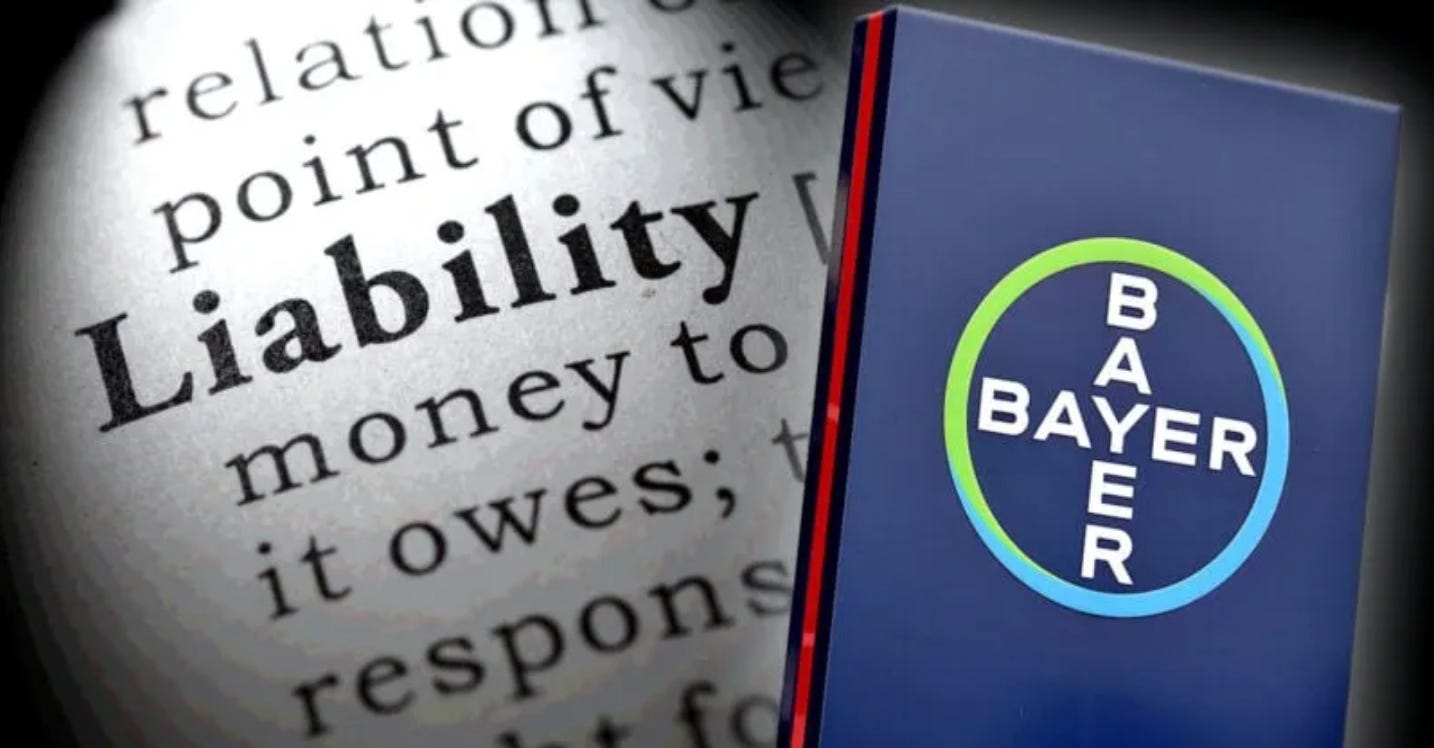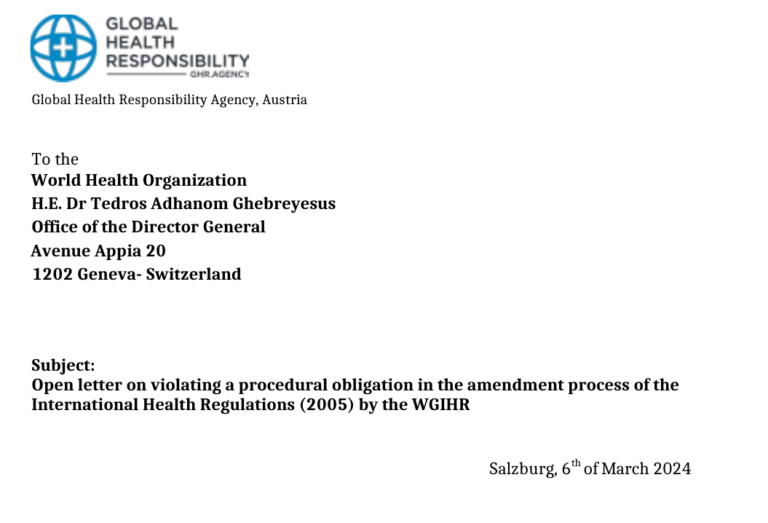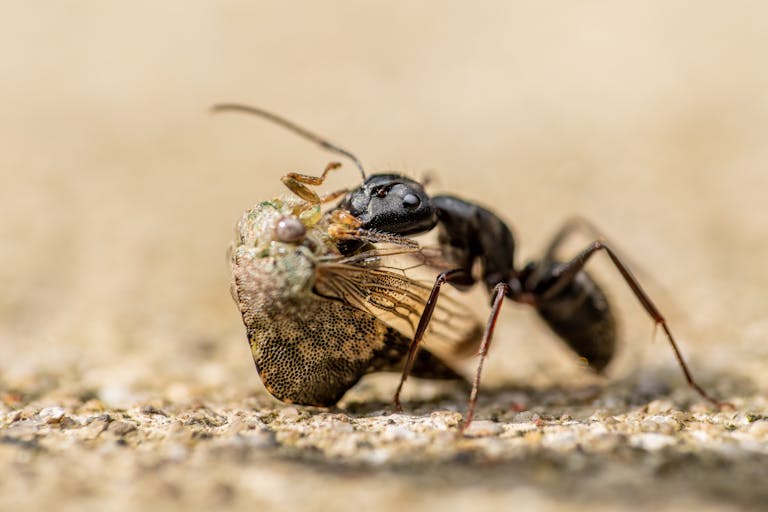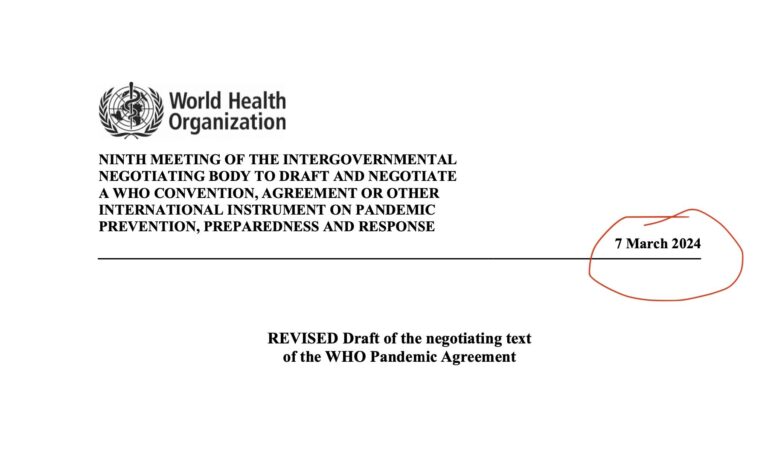Guest essay by Dr. Meryl Nass, exclusive to Malone.News
This article is a repost. It was originally published by Malone News
Will Congress give the pesticide industry a de facto liability shield?
Dr. Meryl Nass, Exclusive to Malone.News
In 2013, Bayer had its 150th anniversary. It was riding high. It sent an airship and anniversary exhibition around the world to celebrate. Its stock price was 27, the highest it had been since it entered the NY stock exchange in 2002. It was bullish and interested in acquisitions.
Bayer decided to go after Monsanto. According to Fortune,
Bayer bought Monsanto as part of its reinvention as a life-science firm with a focus on health and agriculture. At the time the deal was proposed in 2016, the competitive landscape of the agricultural-science space was shifting dramatically—Dow and DuPont were merging, and so were ChemChina and Syngenta. Bayer wanted to become a bigger player in seeds and genetically modified crops, and Monsanto offered just that.
But there were potential problems. The WHO’s International Agency for Research on Cancer had just reported that glyphosate, the active ingredient in Monsanto’s most popular product, the herbicide Roundup, was a probable human carcinogen.
By the time the sale was completed for $63 billion dollars in 2018, thousands of lawsuits against glyphosate were developing. The first case to trial, that of groundskeeper DeWayne Johnson, ended in the plaintiff’s favor just two months after Bayer concluded the purchase. Johnson was awarded $278 million by the jury. That amount was reduced twice in subsequent proceedings to $21 million.
Discovery revealed that Monsanto had known of the potential carcinogenicity of glyphosate since the early 1980s. Monsanto had pressured the EPA, which ignored much of the independent scientific evidence revealing glyphosate’s toxicity and instead relied on industry-supplied studies negating it, in its official safety assessment. California, however, listed glyphosate as a carcinogen since 2017.
Bayer’s stock has been dropping ever since it bought Monsanto. Eventually, about 177,000 potential lawsuits appeared. About 67,000 thousand have settled, at a cost to Bayer of $11 Billion dollars. Bayer’s current share price is $8.05, less than a third of its value before the Monsanto purchase.
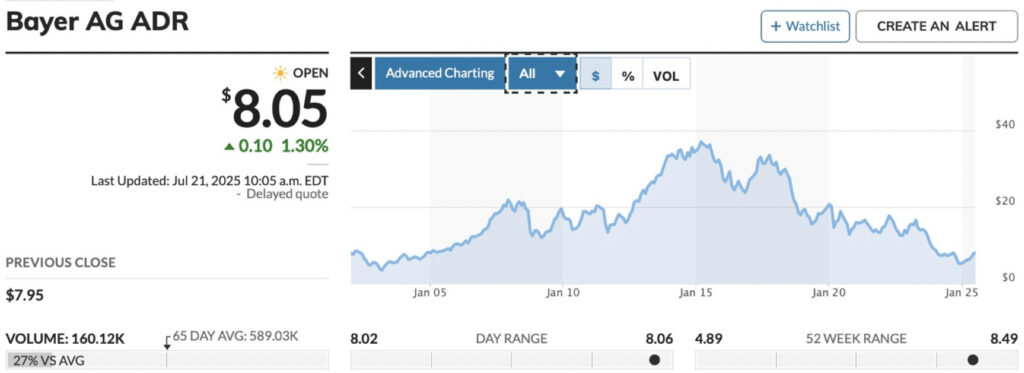
In 2023 Bayer hired a new CEO, Bill Anderson, a Texan, who vowed to take care of the glyphosate liability problem for the company.
He developed an aggressive, 6-pronged approach that was sure to solve the problem, one way or another, and he sequestered a $16 Billion war chest that could be used to pay claims as well as fight the battles needed to wipe out his company’s potential liability.
Bayer is no stranger to risk and controversy. During World War 2, as part of I.G. Farben’s network it ran its own concentration camp to produce war materials, admitting on its website to working 25,000 slave laborers to death.

Therefore, it is not surprising that a company that is no stranger to big risks and big rewards would develop a risky but brilliant strategy to offload its Monsanto liability.
Here are the six prongs of its attack to make its glyphosate liability disappear, and they are nothing if not bold.
1. Bayer’s CEO announced the company would be developing 5 new pesticides. Presumably by the time one is discovered to be harmful, Bayer would simply move on to selling the next one in line.
2. Bayer has hinted at spinning off part of the company, leaving the spun-off portion stuck with all the liability. After paying a certain amount of claims, it could declare bankruptcy, staving off any further losses.
3. Bayer’s CEO warned that the company might stop producing Roundup–probably an idle threat, since it sells $8 Billion of the product yearly, which remains profitable despite its liabilities. It threatened farmers and lawmakers that without it, yields would drop.
4. Bayer appealed one of its losses to the Supreme Court, in hopes it would find against lower courts that made awards to plaintiffs. It is using the strategy of “preemption”, asking the Court to rule that federal pesticide recommendations preempt lawsuits in state courts:
“In a court filing Friday, Bayer urged the Supreme Court to take up a Missouri case that awarded $1.25 million to a man who developed non-Hodgkin’s lymphoma after spraying Roundup on a community garden in St. Louis,” Lieb reported. “The federally approved label for Roundup includes no warning of cancer. Bayer contends federal pesticide laws preempt states from adopting additional labeling for products and thus prohibits failure-to-warn lawsuits brought under state laws.”
“The Supreme Court in 2022 declined to hear a similar claim from Bayer in a California case that awarded more than $86 million to a married couple,” Lieb reported. “But Germany-based Bayer, which acquired Roundup maker Monsanto in 2018, contends the Supreme Court should intervene now because lower courts have issued conflicting rulings.”
The Supreme Court recently asked the Department of Justice to provide information to help it determine whether to hear Bayer’s appeal.
5. Bayer has at the same time sought laws in nearly two dozen states to get its preemption doctrine passed and prevent lawsuits in those states. Two states, North Dakota and Georgia, passed the Bayer legislation, several rejected it, and others have yet to decide.
6. Bayer gathered up other pesticide makers to collaborate in a clever scheme that would virtually end injury lawsuits against all pesticides at the federal level. In this case, the term pesticide applies to all herbicides, insecticides, fungicides, rodenticides and pesticides: tens of thousands of different chemicals, all of which would be shielded. Just think how many billions of dollars the chemical industry would save if they could find a way to exempt a whole class of toxic consumer products from liability.
Until the present, only vaccines have ever received a liability waiver, and so trying to obtain one for the entire class of pesticides is a very bold move indeed.
Here is how it would work. The plaintiffs that have won lawsuits against Bayer for glyphosate injuries made use of a legal doctrine called “failure to warn.” It can be used,
“when a product manufacturer inadequately informs or instructs consumers how to correctly use a product. Failure to warn is essentially a principle of product liability laws. Any warning labels on the product or within the owner’s manual need to be clear, concise, and include all possible dangers and risks associated with using the product. For consumer products, these warnings should include dangers that would not be recognized as obvious to an average consumer.”
So Bayer hired some very clever lawyers and somehow convinced the Republican leadership to slip a rider into an Appropriations bill that would essentially end the possibility of using “failure to warn” in pesticide lawsuits. Here is what the rider says:
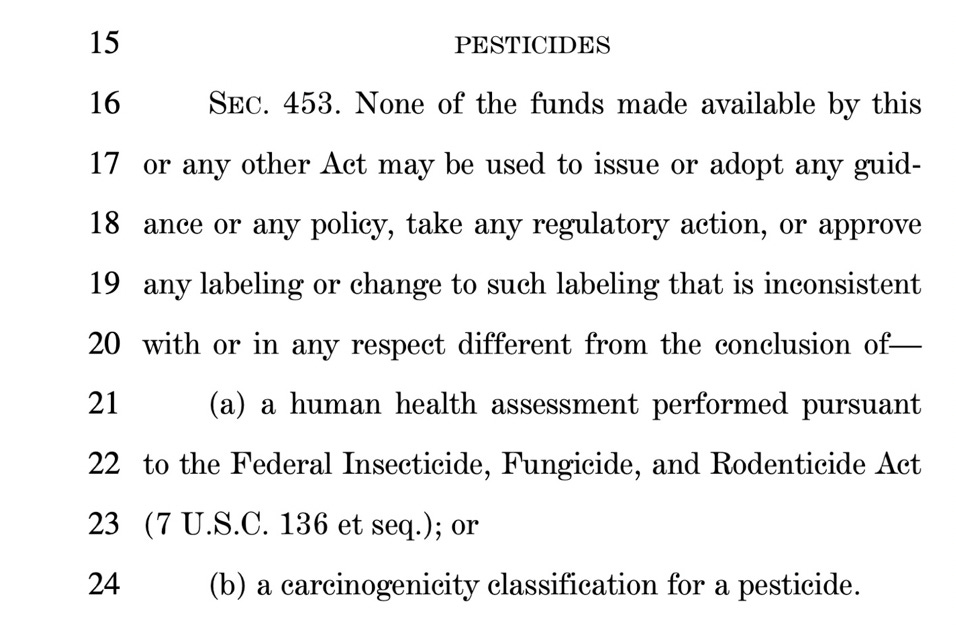
What does it actually mean? It means no federal agency, including EPA, USDA, CDC, NIH, etc., will be able to take any action, make any recommendations, or spend any funds that challenge a human health assessment that has already been made by EPA. EPA, under the Federal Insecticide, Fungicide and Rodenticide Act, is the only agency authorized to regulate pesticides in the United States.
In other words, the EPA’s old but existing determination that glyphosate is safe, based primarily on Monsanto-supplied science, while failing to consider a large body of independent science, will not be allowed to be challenged going forward by other agencies, because the rider blocks all funding for timely label updates or other safety recommendations–throughout the federal government. Specifically, other agencies could be de facto banned from spending money studying toxicity issues that could lead to label changes.
Furthermore, this not just about glyphosate, but about tens of thousands of registered pesticides, now and in the future. If they are not now labelled as carcinogens, endocrine disruptors or causing other health problems, they will not be, going forward. Not until EPA conducts a thorough review according to FIFRA guidelines, which happens less than once per decade.
Couple this with the possibility of preemption at the state level, and pesticide manufacturers will essentially be free of having to worry about litigation regarding the dangerous side effects of their pesticides, for a very long time.
Let me quote a real lawyer (sorry about the anonymity) on this:
If passed, Section 453 will restrict the ability of pesticide companies to update warning labels on their products — even when evidence shows risks — unless the Environmental Protection Agency (EPA) undertakes a new full review of the chemical under Federal Insecticide, Fungicide, and Rodenticide Act (FIFRA), or makes a new carcinogenicity classification of it. Either of these options will take years, leaving millions of unaware Americans potential victims of their known risks.
Section 453 will also limit state or independent authorities from mandating warnings — like California did with Proposition 65 — and centralize that power, instead, with the EPA, even if the EPA is slow to act, or overlooks emerging science. This suggests that the federal government wants to prevent states from requiring stricter labels than those approved by the EPA.
Bottom Lines: Section 453 transforms EPA registration into legal immunity, gutting both federal enforcement authority and state-level accountability mechanisms, creating a regulatory dead zone where companies cannot be held liable, even when they knowingly conceal health risks.
This is a Lose-Lose bill for the American people. While it does not explicitly prohibit lawsuits against pesticide manufacturers, it does take away the cause of action that has allowed these suits to prevail. This means that lawyers will not take such cases on contingency. How many pesticide-injured plaintiffs have the million dollars it takes to mount a lawsuit in which they will almost certainly lose, while Bayer’s deep pockets will allow continued appeals all the way to the Supreme Court?
It is also a Lose-Lose for Americans because once a liability shield is in place, manufacturers have considerably less incentive to make their products as safe as possible. Bayer claims to be developing 5 new pesticides. Are they likely to be any safer than glyphosate if Bayer faces virtually no liability for injuries?
In the US, vaccines are the only consumer product for which liability has been waived, and everyone can see where that has gotten us: poorly manufactured COVID vaccines, supported by fraudulently tested studies, accompanied by false advertising of safety and effectiveness, and practically no recourse for injured parties.
Do we really want to expand the universe of products for which manufacturers face no jeopardy for their inferior, dangerous merchandise?
Having created an effective but superficially vague rider, Bayer had it slipped into a House Appropriations bill that was reviewed by the Interior subcommittee last Monday, with only 24 hours’ notice before their vote. But we knew Bayer would sneak it in somewhere at the last minute, since passing a giveaway to industry like this can only succeed when it is done in the dark. Sure enough, the unamended bill passed the subcommittee along a strict party-line vote, 8 Republicans in favor, 5 Democrats against.
However, this may not accurately reflect how the vote will go in the full Appropriations committee and in the full House and Senate. Why? Because Bayer CEO Bill Anderson has bragged about his bipartisan support. Bayer sponsored a Politico event in March with the ranking member of the Senate Agriculture Committee, Amy Klobuchar (D-MN) and two other members of the Committee, Senators Tina Smith (D, MN) and Deb Fischer (R, NE).
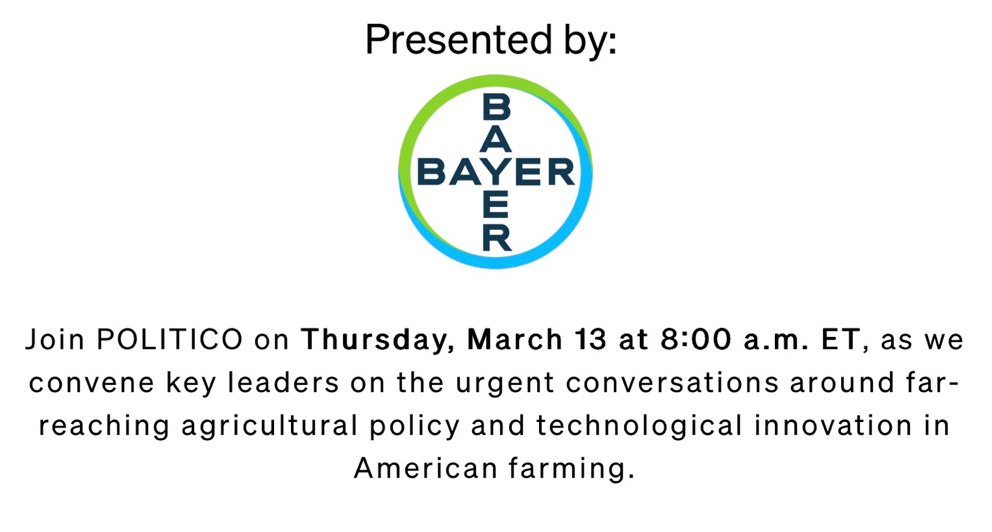

Today, Tuesday July 21, 2025, the Appropriations bill with the Bayer rider goes before the full Appropriations committee. Here amendments can be offered, and at least one will ask for section 453, the Bayer rider, to be removed.
There are 63 members of the Appropriations committee, 35 Republicans and 28 Democrats. To remove the Bayer liability shield we need at least 32 votes in favor of removal. Citizens have been calling their representatives and asking them to vote no.
However, a surprising number of Congressional offices have told their constituents that this rider is nothing like what they have been told. They claim it is not a liability shield at all. Well, I must ask, if it is not a de facto liability shield, then what exactly is it, and how is it intended to benefit the American people? Crickets.
It sounds like Bayer, or party leadership, planned to use the convoluted language of the rider (and the associated need to understand the extremely long FIFRA Act) to deny that the Bayer rider means what we know it means.
When even Bayer’s own website, and the CEO of Bayer told his shareholders that this was what Bayer would be seeking (a solution to its tort liability) it is the height of brazenness for Congressmembers to try and deny it. Clearly, they fear being caught voting for a measure that can only harm their constituents. They feel, or have been told, that it is safest to deny they knew what they were voting for. Don’t let this fool you! Put their feet to the fire if members’ offices try and tell you differently.
Fortunately, Bayer has made fairly clear in writing what it is trying to accomplish for itself and the entire industry:
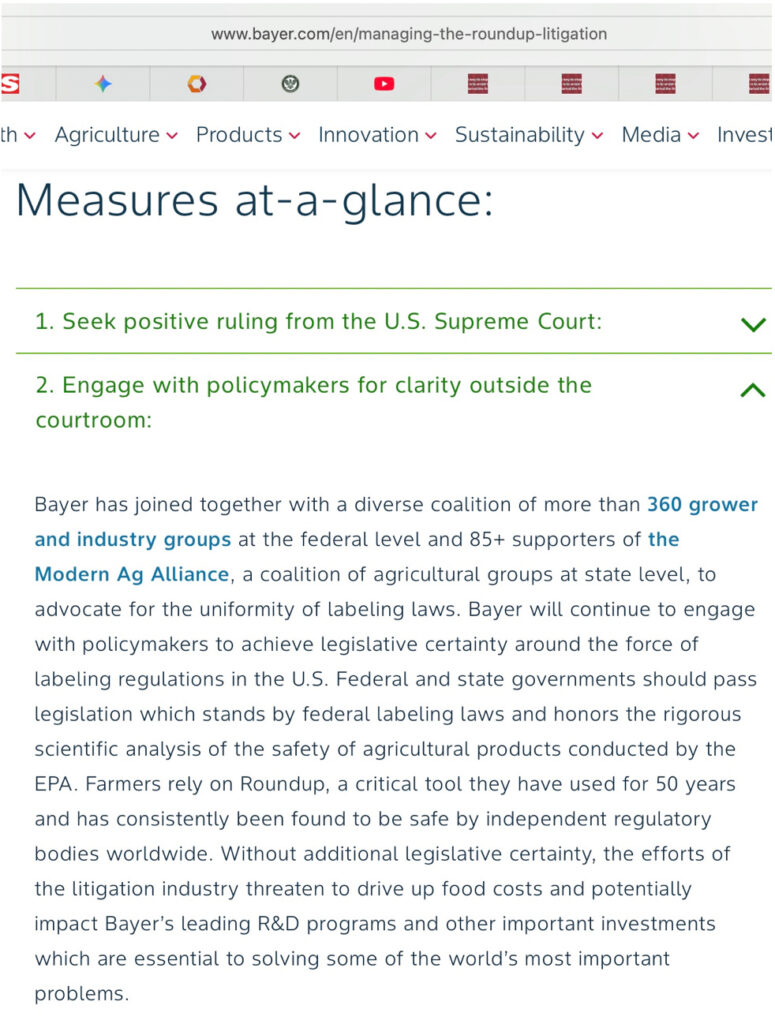
And:
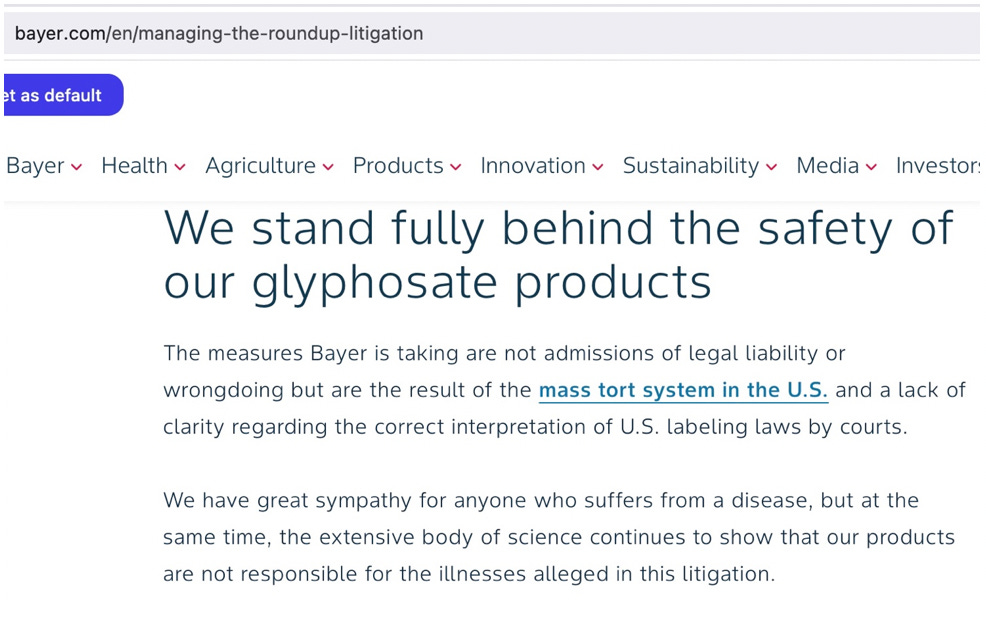
And here is just page 1 of the actions Bayer describes taking, which has not been updated with the Appropriations rider, but reveals Bayer’s relentless legal strategy to fight every case and every issue as aggressively as possible:
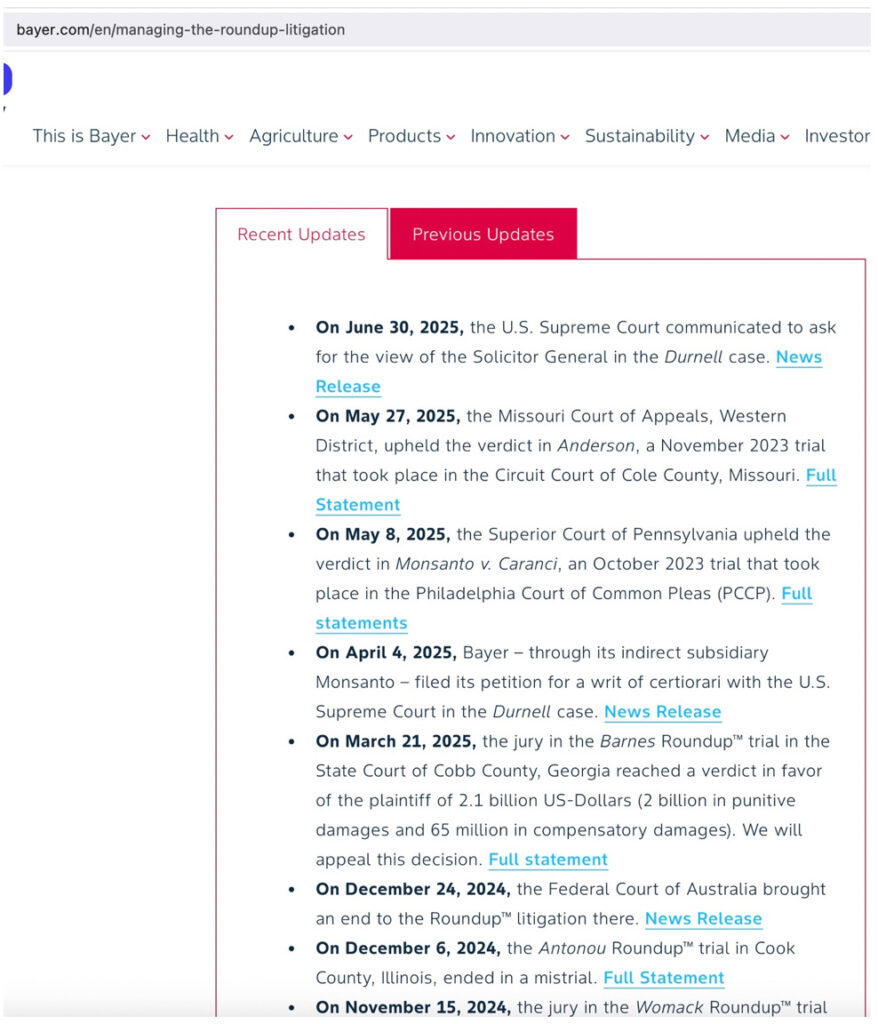
Tomorrow if we can get a majority vote to remove the Bayer rider (Section 453 of the Interior Appropriations bill) we can make this awful attempt to protect the chemical industry go away. This is a hugely important, albeit short bill rider. If passed, it would not only lead to considerable harm but would invite other industries to seek comparable protections.
You can watch the Appropriations hearing tomorrow, which starts at 10:30 am here:
I urge you to act, right now, and tell your members this is absolutely not acceptable.
Thanks very, very much.
Meryl Nass, MD
Please Tell Congress: Don’t give pesticide companies a free pass to poison Americans. Remove Section 453.
Here are the names and phone numbers of the members of the full Appropriations committee. Please call them right now and give them a piece of your mind!
First the Republicans:
Rep. Robert Aderholt (R-AL-4)
(202) 225-4876
Rep. Mark Alford (R-MO-4)
(202) 225-2876
Rep. Mark Amodei (R-NV-2)
(202) 225-6155
Rep. Stephanie Bice (R-OK-5)
(202) 225-2132
Rep. Ken Calvert (R-CA-41)
(202) 225-1986
Rep. John Carter (R-TX-31)
(202) 225-3864
Rep. Juan Ciscomani (R-AZ-6)
(202) 225-2542
Rep. Ben Cline (R-VA-6)
(202) 225-5431
Rep. Michael Cloud (R-TX-27)
(202) 225-7742
Rep. Andrew Clyde (R-GA-9)
(202) 225-9893
Rep. Tom Cole (R-OK-4)
(202) 225-6165
Rep. Mario Diaz-Balart (R-FL-26)
(202) 225-4211
Rep. Chuck Edwards (R-NC-11)
(202) 225-6401
Rep. Jake Ellzey (R-TX-6)
(202) 225-2002
Rep. Chuck Fleischmann (R-TN-3)
(202) 225-3271
Rep. Scott Franklin (R-FL-18)
(202) 225-1252
Rep. Tony Gonzales (R-TX-23)
(202) 225-4511
Rep. Michael Guest (R-MS-3)
(202) 225-5031
Rep. Andy Harris (R-MD-1)
(202) 225-5311
Rep. Ashley Hinson (R-IA-2)
(202) 225-2911
Rep. Dave Joyce (R-OH-14)
(202) 225-5731
Rep. Nick LaLota (R-NY-1)
(202) 225-3826
Rep. Julia Letlow (R-LA-5)
(202) 225-8490
Rep. Celeste Maloy (R-UT-2)
(202) 225-9730
Rep. John Moolenaar (R-MI-2)
(202) 225-3561
Rep. Riley Moore (R-WV-2)
(202) 225-2711
Rep. Dan Newhouse (R-WA-4)
(202) 225-5816
Rep. Guy Reschenthaler (R-PA-14)
(202) 225-2065
Rep. Hal Rogers (R-KY-5)
(202) 225-4601
Rep. John Rutherford (R-FL-5)
(202) 225-2501
Rep. Mike Simpson (R-ID-2)
(202) 225-5531
Rep. Dale Strong (R-AL-5)
(202) 225-4801
Rep. David Valadao (R-CA-22)
(202) 225-4695
Rep. Steve Womack (R-AR-3)
(202) 225-4301
Rep. Ryan Zinke (R-MT-1)
(202) 225-5628
And the Democrats:
Rep. Pete Aguilar (D-CA-33)
(202) 225-3201
Rep. Sanford Bishop (D-GA-02)
(202) 225-3631
Rep. Ed Case (D-HI-01)
(202) 225-2726
Rep. James Clyburn (D-SC-06)
(202) 225-3315
Rep. Henry Cuellar (D-TX-28)
(202) 225-1640
Rep. Madeleine Dean (D-PA-04)
(202) 225-4731
Rep. Rosa DeLauro (D-CT-03)
(202) 225-3661
Rep. Veronica Escobar (D-TX-16)
(202) 225-4831
Rep. Adriano Espaillat (D-NY-13)
(202) 225-4365
Rep. Lois Frankel (D-FL-22)
(202) 225-9890
Rep. Marie Gluesenkamp Perez (D-WA-03)
(202) 225-3536
Rep. Josh Harder (D-CA-09)
(202) 225-4540
Rep. Steny Hoyer (D-MD-05)
(202) 225-4131
Rep. Glen Ivey (D-MD-04)
(202) 225-8699
Rep. Marcy Kaptur (D-OH-09)
(202) 225-4146
Rep. Susie Lee (D-NV-03)
(202) 225-3252
Rep. Mike Levin (D-CA-49)
(202) 225-3906
Rep. Betty McCollum (D-MN-04)
(202) 225-6631
Rep. Grace Meng (D-NY-06)
(202) 225-2601
Rep. Joseph Morelle (D-NY-25)
(202) 225-3615
Rep. Frank Mrvan (D-IN-01)
(202) 225-2461
Rep. Chellie Pingree (D-ME-01)
(202) 225-6116
Rep. Mark Pocan (D-WI-02)
(202) 225-2906
Rep. Mike Quigley (D-IL-05)
(202) 225-4061
Rep. Norma Torres (D-CA-35)
(202) 225-6161
Rep. Lauren Underwood (D-IL-14)
(202) 225-2976
Rep. Debbie Wasserman Schultz (D-FL-25)
(202) 225-7931
Rep. Bonnie Watson Coleman (D-NJ-12)
(202) 225-5801

